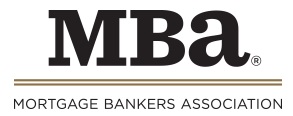WASHINGTON, D.C. (December 8, 2017) – (RealEstateRama) — Christopher M. George, Chairman-Elect of the Mortgage Bankers Association (MBA) and the founder, President and CEO of CMG Financial, testified today before the U.S. House of Representatives Financial Services Committee Subcommittee on Financial Institutions and Consumer Credit at a hearing entitled, “Legislative Proposals for a More Efficient Federal Financial Regulatory Regime: Part II.” His full written testimony is available here. Below is George’s oral testimony, as prepared for delivery:
Chairman Luetkemeyer, Ranking Member Clay, and members of the subcommittee, I appreciate the opportunity to testify this afternoon on behalf of the Mortgage Bankers Association.
My name is Chris George, and I am the founder, President, and Chief Executive Officer of CMG Financial, a privately-held mortgage bank headquartered in San Ramon, California. I also currently hold the position of Chairman-Elect of the MBA, and I have previously served as Chairman of the California Mortgage Bankers Association.
As a three-decade veteran of the mortgage industry, I am pleased to share my views on HR 2570, the Mortgage Fairness Act, and the Comprehensive Regulatory Review Act. MBA supports both bills and believes they offer practical solutions to improve the efficiency of mortgage market regulations.
One of the most significant features of the Dodd-Frank Act was the requirement that lenders, during the underwriting process, carefully demonstrate a mortgage borrower’s ability to repay their loan. And while the Qualified Mortgage standard that was developed by the CFPB was not meant to limit mortgage originations to only loans that meet this standard, the significant potential liability and litigation expenses for violations of the Ability to Repay rule have directed the vast majority of the market towards QM loans that provide safe harbor from potential litigation.
As the ATR rule and QM standard have been implemented, MBA has consistently maintained the view that mortgages originated with the same interest rate and other product features should be treated equally from a regulatory perspective, regardless of the originator’s business model.
HR 2570 aims to improve a provision of the ATR rule and QM standard that generates unequal treatment of loans originated by mortgage brokers. The ATR rule and QM standard includes fees paid by a wholesale lender to a mortgage broker in the calculation of points and fees, which is used to determine whether a loan qualifies for the QM safe harbor. However, fees paid by a wholesale lender to a mortgage broker are already reflected in the interest rate offered to the consumer, resulting in a double-counting of these fees.
Because of this double-counting, loans originated through mortgage brokers are more likely to exceed the maximum allowable points and fees under the ATR rule and QM standard. This treatment results in some loans originated by mortgage brokers failing to qualify for QM safe harbor, while the exact same loans would have qualified if originated through a different channel.
HR 2570 would eliminate this double-counting and level the playing field for mortgage brokers, increasing competition in the lending market. We think this would ultimately benefit consumers, in particular low to moderate income consumers, by giving them greater choice when they go to shop for a loan, and thus potentially lowering their borrowing costs.
MBA supports HR 2570 and urges the committee to advance this common-sense provision to ensure that otherwise similar loans are not treated differently due simply to their origination channel.
MBA also supports the Comprehensive Regulatory Review Act, which amends the Economic Growth and Regulatory Paperwork Reduction Act. This legislation will clarify the EGRPRA review process, and eliminate ambiguity to ensure the Federal Financial Institutions Examination Council undertakes the timely review and elimination of any unnecessary regulations.
EGRPRA is an oversight mechanism designed to ensure that regulations are reviewed and evaluated in light of changes in the market or the interlocking federal regulatory structure. This proposed legislation seeks to improve the EGRPRA regime to better reflect significant structural changes to the federal regulatory landscape that have occurred since its original adoption in 1996. This legislation accomplishes this goal by increasing the frequency and expanding the breadth of reviews, and also by incorporating additional regulators in the process.
The proposed legislation requires comprehensive reviews every five years, rather than the current once-per-decade requirement. A shorter interval between reviews will prompt regulators to move more quickly to relieve the burden of outdated regulations or identify those that are otherwise unnecessary. Given the fast pace of technological innovation in today’s market, a more frequent regulatory review cycle is critical to ensuring that regulations keep pace with the market and do not stifle innovation.
If this legislation is codified, the regulator’s responsibility would no longer end with just an inventory of unnecessary regulations, but with the elimination of unnecessary regulations. In addition, each regulation must be tailored in a manner that limits its regulatory compliance impact, cost, and liability risk. In this way, the proposal provides actual regulatory relief. MBA sees this proposed legislation as having a positive impact on the efficiency of mortgage market regulations.
MBA urges the committee to pass this bill to ensure that the consumer financial regulatory regime is appropriately tailored to accommodate market changes or technological innovation.
Thank you again for the opportunity to testify today. I look forward to any questions you may have.
CONTACT
Name
(202) 557- 27XX


